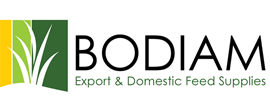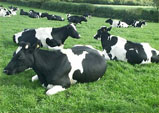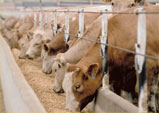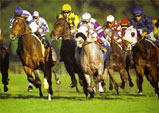
On Farm
Quality assurance at farm level begins with cultivating a great relationship with our growers. Through education about quality levels required for an export product, we are better able to ensure the fodder we purchase is of the highest standard.
On-farm quality assurance is conducted through the following procedures:
Farm visits
Spending time with our growers, talking to them about the most suitable varieties and techniques to use in their specific area, is a key component of quality assurance. Physically viewing the farms and paddocks before cropping also allows us to offer advice on potential issues before they occur.
Inspections
Individual paddocks are inspected at intervals throughout the growing and baling periods.
-
- Pre-tillering Paddock Inspections are carried out between the 2 and 4 leaf growth stage. This allows for an assessment of the crop health, whilst still having a relatively clear view of the paddock surface.
Potential contaminants checked at this point are:- Animal matter
- Dirt clods
- Wire
- Old season stubble
- Metal
- Rocks/stones
- Wood
- Pre-cutting Paddock Inspections occur immediately before the crop is mowed.
General crop health and consistency is noted, as well as the following:- All contaminants as during the Pre-tillering Paddock Inspection
- Stem or leaf diseases
- Grass, broadleaf, or other weeds
- Post-baling Paddock Inspections are conducted prior to the finished bales being carted or stacked. This is the final check of the paddock itself and the first opportunity to examine the cured (dried) product.
Contaminants noted in the paddock or bale may include:- All contaminants as during the Pre-tillering Paddock Inspection
- Pre-tillering Paddock Inspections are carried out between the 2 and 4 leaf growth stage. This allows for an assessment of the crop health, whilst still having a relatively clear view of the paddock surface.
FodderSafe
Prior to purchasing any product, Bodiam receives a Paddock Treatment Record (PTR) from the grower. This documents all herbicide and pesticides applied to the crop and allows us to check these chemicals for use on an export product. The information on the PTR is copied into FodderSafe, an Australian Fodder Industry Association (AFIA) initiative. This program makes keeping track of chemicals suitable for the export market simple and fast, further ensuring our product is perfectly matched to it's intended customer.
ARGT testing
Testing for Annual Rye-grass Toxicity (ARGT) is conducted in every paddock of every product purchased by Bodiam. All staff taking part have achieved 'Competency to Sample Hay for ARGT Testing' as assessed by the Australian Department of Agriculture, Fisheries and Forrestry (DAFF).
Guidelines for ARGT testing are set out in the 'Standard for Minimising the Risk of Corynetoxin Contamination of Hay and Straw for Export', and this is strictly adhered to. Any product used for export must return a NEGATIVE ARGT test result. Those samples that are POSITIVE or WEAK POSITIVE are unsuitable and not purchased.
Bodiams extensive record keeping and tracebility procedures for ARGT testing are audited annually by DAFF, as an industry wide requirement.
For more information on ARGT please follow the below link:
http://www.daff.gov.au/__data/assets/pdf_file/0016/114037/hay_straw_export_standard_jan2005.pdf
Bale tagging
To ensure complete product traceability, every individual hay or straw bale is fitted with an identification tag. This is fitted by the grower or by our staff when the product is sampled for ARGT. This enables us to instantly ascertain the
bales grower, crop year, paddock and paddock section, throughout its transportation, storage and processing.






